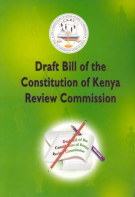The National Land Policy in Kenya Must Address Natural Resources
Although The National Land Policy Formulation Process is concentrated on addressing land issues, the reform agenda requires inter- alia that there are policy directions for establishing an equitable framework for economic growth and access to natural resources. The natural resources in question include water, forests, minerals, mineral oils, wildlife, marine resources, fisheries, pastures, and wetlands.










